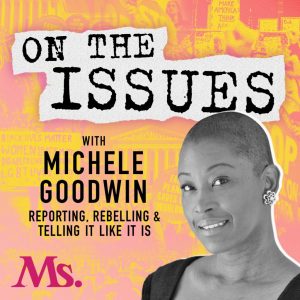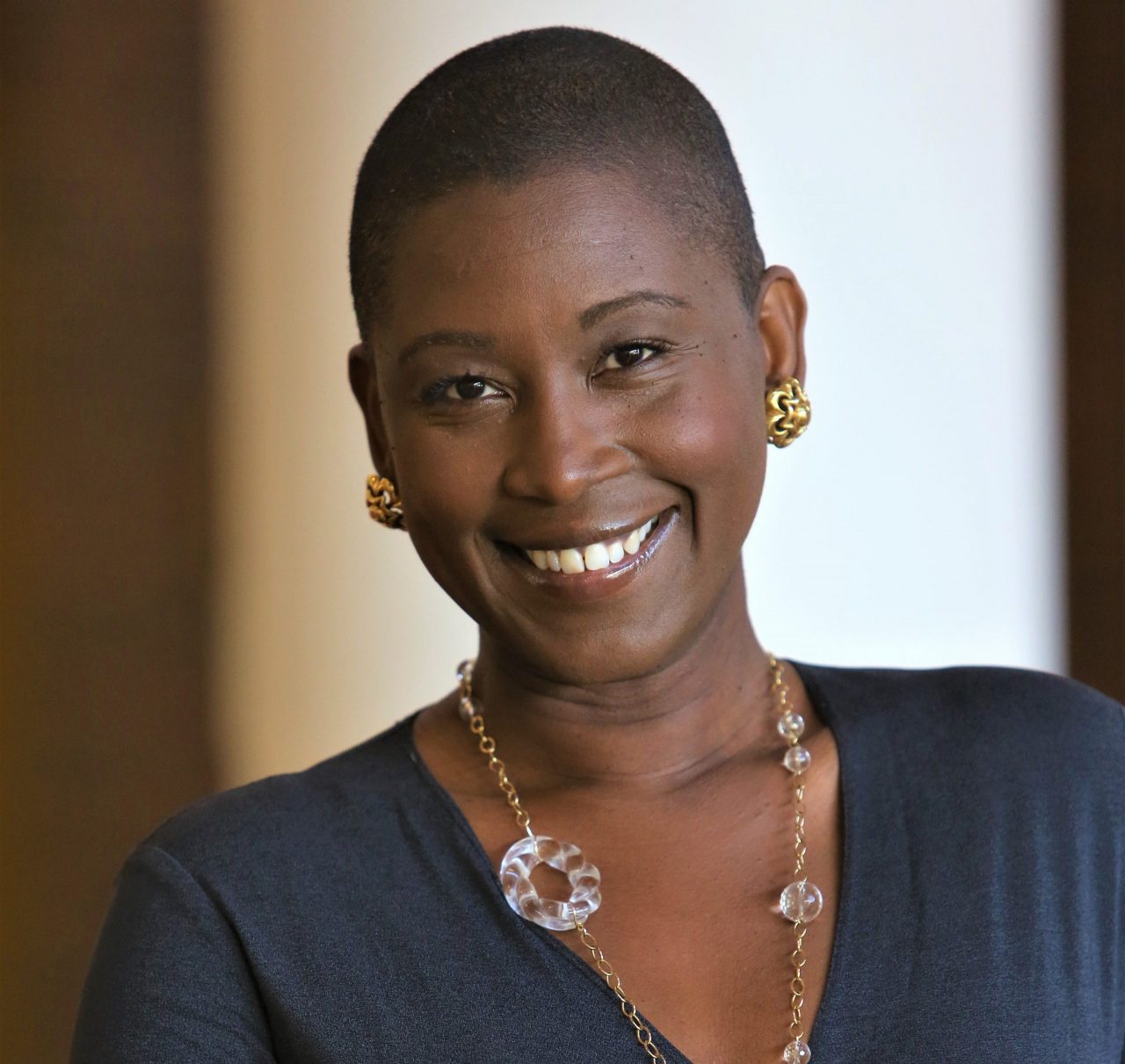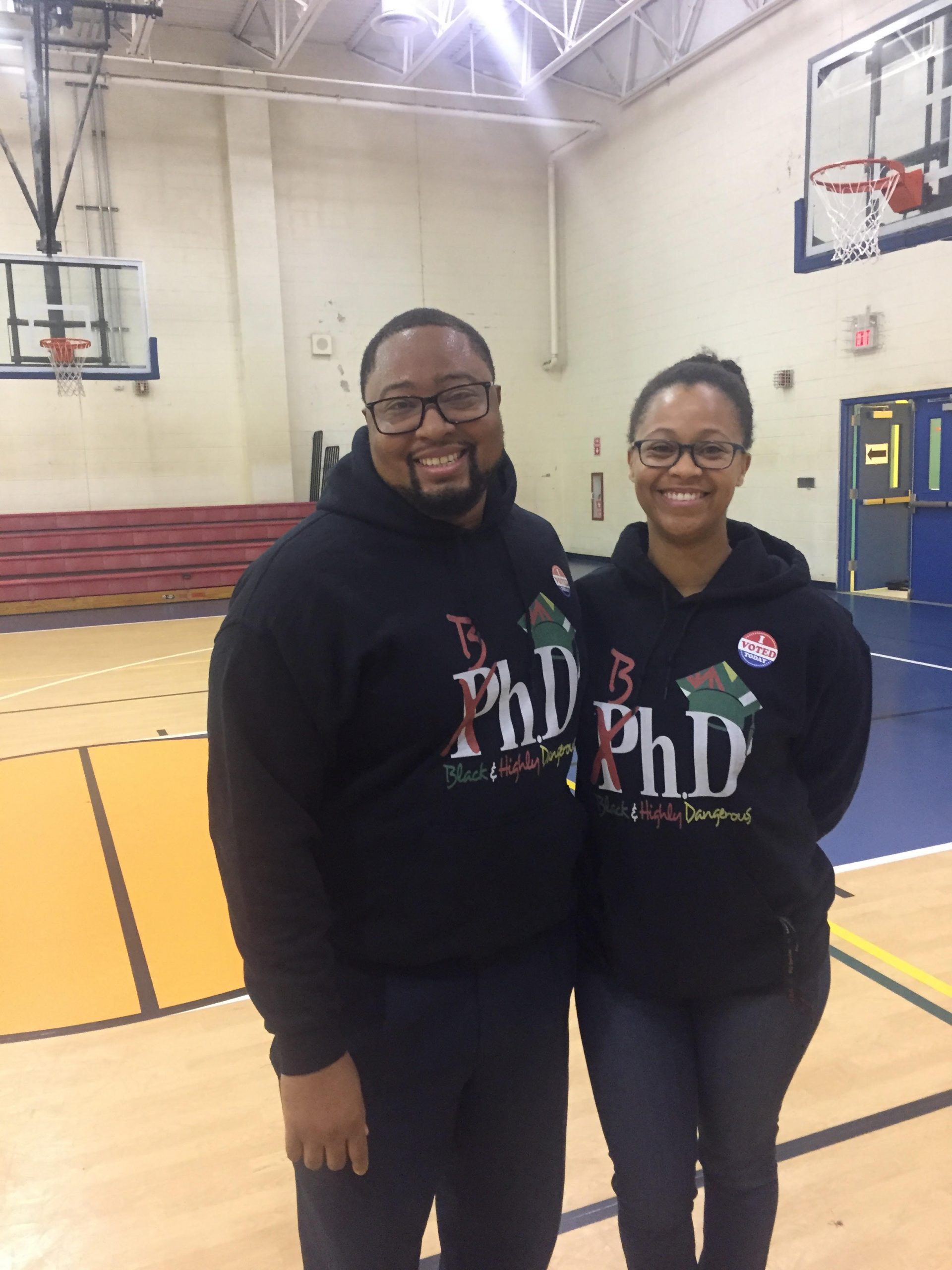Tackling The Most Compelling Issues Of Our Time
Dr. Michele Bratcher Goodwin is a global thought leader and advisor, activist, social commentator, award-winning author, and advocate known for telling it like it is while tackling the most compelling issues of our time.
Founder and director of the Center for Biotechnology and Global Health Policy and its Reproductive Justice Initiative, Dr. Goodwin also holds the Chancellor’s Professorship at the University of California, Irvine.
She has published opinion editorials addressing pressing matters of law, society, and global health in Forbes, Salon, L.A. Times, Politico, Christian Science Monitor, and the New York Times, and is a frequent contributor to Ms. magazine, which is dedicated to “making feminist voices audible, feminist journalism tenable, and a feminist worldview available to the public.”
And, just for good measure, since June of 2020, she has also held the roles of host and executive producer of the podcast On the Issues with Michele Goodwin. A production of Ms. Magazine, the show aims to serve as a vehicle for sharing, discussing, and debating the critical issues of today.
“I think about issues like voting, reproductive rights, women’s rights, and the quality of healthcare, because I am a bioethicist,” Dr. Goodwin said. “I think about people’s access to food. I think about justice in the world, racial equality, immigration, all of these different issues. So part of why I’ve worked with Ms. magazine and the Feminist Majority Foundation for some time is because I am well-situated as a constitutional law scholar who cares about issues related to women, children, and folks in society to deconstruct issues along a constitutional spectrum in a way they can easily understand and digest.”
Dr. Goodwin’s life work, as one would expect, has roots that weave all the way back to her childhood, which was split between family members.
Dr. Goodwin’s grandmother described her parents best, she said: they were “like fire and ice.” They lived in Montreal, and thanks to their dysfunctional relationship, Dr. Goodwin spent four “rosy—and transformative” years when she was very young splitting time between her maternal and paternal grandparents in Wisconsin.
Her maternal grandparents, who Dr. Goodwin describes as “nature-of-the-earth” types, were from the South. And clearly, the human advocacy that runs through her veins came at least somewhat from her maternal grandmother, who Dr. Goodwin says “conducted her own form of an underground railroad”:
“I thought I had so many biological aunts and cousins, but really, they were women escaping the South. Sometimes, they were not just escaping the political dynamics of the South, but also abusive spouses. I didn’t realize until later that we were not related to them. My grandmother welcomed them that way so they wouldn’t be viewed as strangers. They deserved to be treated with the same respect and dignity that we would give any relative as a child. There was no getting upset that they or their children were in your room, or using your things, because they were family.”
Dr. Goodwin’s paternal grandmother exposed her to the more distinguished lifestyle, taking her to ballets and operas and spending weekends together folding doilies and listening to classical music. Between these grandmothers and role models, Dr. Goodwin says there was “ironically a very interesting and almost seamless balance.”
But then came the hard times. Dr. Goodwin went to live with her parents, and in one year’s time, even she knew they should not be together.
They separated, and Dr. Goodwin went to live with her mother, thereby taking a front-row seat to the effects of severe alcoholism.
At nine years old, her mom abandoned her, and after four days and nearly running out of food, Dr. Goodwin contacted her aunt for help.
Shortly thereafter, she moved to Manhattan to live with her well-to-do father. There, she attended elite private schools and took violin, piano, and horseback riding lessons.
Still, even as a child, Dr. Goodwin was sensitive to the fact that her mother’s difficulties with sobriety were likely linked to the fact that her father had been very abusive to her. Right before high school, she was sent again to live with her mother, and her sense of empathy was balanced with fear. At the age of 14, she spent many sleepless nights forcing herself to remain alert enough to hear her mother’s return, so she could “put her to bed appropriately,” Dr. Goodwin revealed. “I had this constant fear of her vomiting in the middle of the night and choking and dying. Now, maybe it was an absurdist fear, but it was also my reality.”
Always a straight A student, Dr. Goodwin’s grades dropped as she struggled to hold things together at home. She dreamed her mom—who passed her commitment to civil rights and justice on to her—would get help. She even staged an intervention, but when that failed, she realized her living situation was simply no longer viable.
At 15 years old, she left home with 10 dollars in her pocket and a plane ticket to New York , recognizing that “she could not become the person she wanted to become if she continued living with either parent.”
Fortunately, a friend offered to rent her the unfinished attic space in their home. Calling it “an appropriate dose of a sense of justice and another of naivete,” it was both a hard time for Dr. Goodwin and an opportunity to become her own woman—one who was instinctively committed to finding herself and refusing to succumb to the adversities children of alcoholics so often experience.
Too young to ‘officially’ work, fate brought her the job she needed.
While walking around with the classified ads in hand, Dr. Goodwin saw a man trimming hedges. “We said ‘hello,’” she recalled, “and the next thing I know, he asked if I needed a job. I said, ‘Yes.’ And he said, ‘My wife is Dr. Nina Masur. You can find her in the telephone book.’ And he went back to clipping his hedges. I contacted her that afternoon, and she hired me to help them around their house. I was so grateful. It was just such an impactful event on a kid trying to make her way.”
Dr. Goodwin now points to Dr. Masur as one of the women she admires most in life, because she is a symbol of what is possible. Once a dancer, Dr. Masur pushed herself to take a community college course, which ultimately led to her journey to becoming a renowned doctor.
The experience of making it on her own provided Dr. Goodwin with a sense of strength of being able—a certainty of being… capable. Yet, navigating the world as a woman of color meant she would constantly encounter barriers to the idea of full inclusion and equality.
Nevertheless, she is quick to point out the positive changes she has seen over the course of her career.
“I think a failure to acknowledge that things have changed does a disservice to women like Fannie Lou Hamer and so many others who have been in the trenches advocating for meaningful equality in employment and in transformative access to higher education. 50 years ago, there were law schools, medical schools, and graduate schools of many ranks that had quotas on the admission of women. When I was in law school more than 25 years ago, it was unusual for us to use the feminine pronoun to describe people in a case, even in cases with women litigants.
“Now, women make up about 50% of the population in law and medical schools. We have more women in STEM. And so those pipelines are much thicker and robust than they were before. So many people worked on these issues, and they did create change.
“There are of course still challenges. Women make up just 17% of partners at law firms. The percentage of women as CEOs of elite companies is just as bleak. It’s rare to see more than one or two women on a board of 10, 15, 20, or 30 people, and we haven’t even begun to mix race into it. At every law school, except my present one, upon my hiring, I was either the only or one of two Black people on the faculty.
“There are amazing people who are not being tapped for their expertise. All around us, mediocrity rises to the top. And that’s a reality we have to confront.”
 To do her part in the confrontation of the issues at the heart of our nation, Dr. Goodwin started the On The Issues with Michele Goodwin podcast—dedicated to “rebuilding our nation and advancing the promise of equality.”
To do her part in the confrontation of the issues at the heart of our nation, Dr. Goodwin started the On The Issues with Michele Goodwin podcast—dedicated to “rebuilding our nation and advancing the promise of equality.”
The podcasting medium, Dr. Goodwin explained, allows her to reach an audience in myriad ways that she otherwise can’t: non-visual learners, those who are commuting or working out or engaging in activities that don’t accommodate carrying Ms. Magazine in hand. The COVID-19 pandemic also played a big part in her motivation to reach people in different ways.
Her goal with the show is of course aligned with her “why”:
“To elevate the place of more women. We’re also really trying to educate and inform from a broader perspective—to give some legitimacy to two perspectives that don’t necessarily get a lot of airtime as well as different pathways for understanding.
“For example, when we launched, Breonna Taylor and George Floyd had recently lost their lives. We decided, all right, we need to meet this moment. And we need to talk about police in the United States. What we wanted to do was bring women in law enforcement and experts in this area to see if we could learn something new from a different perspective. Throughout that process, we did—we learned about the patterns of discrimination and police departments that keep women out. And we learned that women are far less likely to use excessive force. We talked to a filmmaker doing a documentary about women in blue who was inspired to make the film after asking her friend, a female police officer, what she might have done differently with Eric Garner.
“Her friend replied, ‘I would have gone up to him and said, ‘My name is Julie… what’s yours?’’
“What we do is shine a light on the issues that are taking place in society today, and we feature experts who can help us through them. When I look back over our last six months, I am really impressed by the guests we’ve had on.
“I make an effort to host the show in a way that allows my guests to relax and my audience to lean in. We had Congresswoman Barbara Lee on, and we were talking about reproductive healthcare available abroad for women. The discussion wasn’t even about her personal life. And she shared with us that her mother took her to Mexico to have her abortion when she was in high school. I was surprised, but honored, that she felt comfortable doing so.”
With aspirations that listeners finish each episode of On The Issues better informed and more inspired about the issues taking place in our society, Dr. Goodwin strives to also provide them a method for connecting in an intimate way with topics that may seem esoteric.
The message she has for women, and the one she shares though all her endeavors, is to keep hope alive, no matter what.
“Let no one take your hope from you. A sense of your own internal dignity and worth is not something to be compromised or bartered with. That is yours, and it’s important to maintain it. Remember, we have choices in life. Sometimes, those choices are tiny ones that have to be made in order to make a huge difference in the future. It’s those tiny choices that I really pay attention to every day of my life.”
One might wonder how Dr. Goodwin keeps her own hope alive in the face of adversity.
Naturally, her beacon of light is her daughter.
From each “tiny choice” made to her ongoing impactful and profound leadership, Dr. Goodwin views each step along her evolving path as paving the way not only for her daughter to have more options, opportunity, and acceptance than what was available for her growing up, but for all women and ALL Americans to have such “benefits” as well.
And, the primary means to this end? Taking on the most pressing issues that will ultimately create sustainable and systemic change.
April 2021











In today’s op ed in the NYT she says she left home with $10; this item says she had $1. Which is it?
Not sure what you mean, this article states “At 15 years old, she left home with 10 dollars in her pocket and a plane ticket to New York…”
Missing are the repeating rapes beginning at age 10 and pregnancy she suffered at the hands of her father- described in an op-ed in the New York Times by her.